From First Year to First Rate
From First Year to First Rate
Thriving During the Initial Years of a Teaching Career
Matthew J. Jennings
ROWMAN & LITTLEFIELD
Lanham Boulder New York London
Published by Rowman & Littlefield
An imprint of The Rowman & Littlefield Publishing Group, Inc.
4501 Forbes Boulevard, Suite 200, Lanham, Maryland 20706
www.rowman.com
6 Tinworth Street, London SE11 5AL, United Kingdom
Copyright 2021 by Matthew J. Jennings
All rights reserved. No part of this book may be reproduced in any form or by any electronic or mechanical means, including information storage and retrieval systems, without written permission from the publisher, except by a reviewer who may quote passages in a review.
British Library Cataloguing in Publication Information Available
Library of Congress Cataloging-in-Publication Data
Names: Jennings, Matthew, author.
Title: From first year to first rate : thriving during the initial years of your teaching career / Matthew J. Jennings.
Other titles: From 1st year to 1st rate
Description: Lanham : Rowman & Littlefield, [2021] | Includes bibliographical references.
Identifiers: LCCN 2021020419 (print) | LCCN 2021020420 (ebook) | ISBN 9781475861495 (Cloth : acid-free paper) | ISBN 9781475861501 (Paperback : acid-free paper) | ISBN 9781475861518 (eBook)
Subjects: LCSH: First year teachersIn-service trainingUnited StatesHandbooks, manuals, etc. | TeachersTraining ofUnited StatesHandbooks, manuals, etc. | Mentoring in educationUnited States. | Classroom managementUnited States. | Effective teachingUnited States. | TeachingVocational guidanceUnited StatesHandbooks, manuals, etc.
Classification: LCC LB2844.1.N4 J46 2021 (print) | LCC LB2844.1.N4 (ebook) | DDC 371.1dc23
LC record available at https://lccn.loc.gov/2021020419
LC ebook record available at https://lccn.loc.gov/2021020420
 The paper used in this publication meets the minimum requirements of American National Standard for Information SciencesPermanence of Paper for Printed Library Materials, ANSI/NISO Z39.48-1992.
The paper used in this publication meets the minimum requirements of American National Standard for Information SciencesPermanence of Paper for Printed Library Materials, ANSI/NISO Z39.48-1992.
This book is dedicated to all of the new teachers I have supported throughout my career. Despite having more lucrative career opportunities, you chose to make a difference. Your commitment to improving our future is inspirational. May you never lose your enthusiasm for creating a better world.
Acknowledgments
I would like to thank Jennifer Ward and Melissa Jennings for reviewing the content of this book and offering suggestions for improvements. As teachers, they reminded me of the practical needs of busy professionals. I would also like to thank my wife, MaryAnn Jennings, for her help in proofreading and formatting my final copy for submission. None of what I have been able to do would be possible without her partnership.
Introduction
Congratulations! If you are reading this book, it is likely that you have received and accepted an offer for a teaching position. After initially celebrating this achievement, you will eventually be left wondering, now what? What are the steps that I need to take to become a professional educator?
As one of the first steps, it is very likely you will attend some form of new staff member orientation. In this orientation you will probably learn about the vision, mission, and goals of the school district. In addition, you will likely learn content related to state-mandated trainings and board of education policies. You might learn about district technology applications and the process used to evaluate staff. While these topics are necessary, they are insufficient for preparing you to make the successful transition from student to teacher.
Another step you are likely to experience is the assignment of a mentor teacher. If you are fortunate, your mentor will have experience related to your assignment and will have voluntarily agreed to serve in this capacity. He or she will have been trained in research-based mentoring practices and will have the time and support required to serve effectively as a mentor.
This mentor will assist you with understanding the politics of your department and/or school. They will also help you to understand the various procedures used to complete required tasks. Importantly, they will serve as a sounding board for your ideas as well as emotional support for the inevitable challenging moments. You may receive help from your mentor on understanding and implementing the curriculum. These are all vital roles that assist with the transition to becoming a professional teacher.
Far less common than orientation and mentoring is a systematic induction process designed to build the foundational skills required for long-term success as an educator. Most educators would agree that success as a classroom teacher requires the effective application of research-based classroom management, instruction, and assessment skills. Additionally, an effective teacher has adequate content knowledge and a strong sense of professionalism. These five domains represent the foundation of effective teaching. Without these prerequisite skills, other professional development initiatives such as differentiated instruction, response to intervention, or problem-based learning are likely doomed to failure.
As an example, to effectively differentiate instruction in a classroom on a regular basis, students must be engaged in using different processes or creating different products throughout the classroom. Having students working in various configurations on various products requires excellent classroom management skills. To differentiate effectively on a regular basis, a teacher must have a large repertoire of instructional strategies they can use successfully. If they do not have command of multiple instructional strategies, how are they going to effectively differentiate on a regular basis? Lastly, effective differentiation is based on determining a students readiness, learning styles and interests. At a minimum, quality assessment is required in order to determine readiness. If the assessment of readiness is done poorly, then the differentiation could be based on inaccurate data.
This is not to say that I am opposed to differentiated instruction or some of the other initiatives such as response to intervention or project-based learning. What I am saying is new teachers should not have a focus on any of these initiatives until they can effectively perform the basic management, instruction, and assessment functions in their classrooms.
School administrators often assume that these skills have been mastered through teacher preparation programs. There are two problems with this assumption. First, in the case of classroom assessment this is probably not true. Many teachers graduate from teacher preparation programs having had little to no training in the effective use of classroom assessment. Second, in the case of classroom management and instruction, these skills will not fully make sense until they are applied in the context of the classroom. In teacher preparation programs, students may have learned about these skills, but they will not come to understanding them until they apply them with students.
In the pages that follow, the reader will come to understand, in simple and concise descriptions and explanations, research-based practices in management, instruction, assessment, and professionalism. While adequate content knowledge is also important, it is specific to subject areas and is thus beyond the scope of this book.

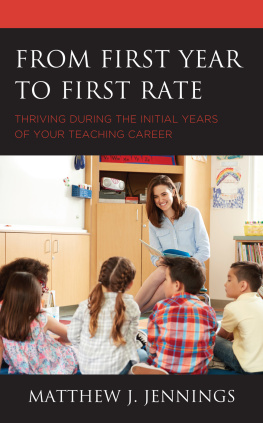
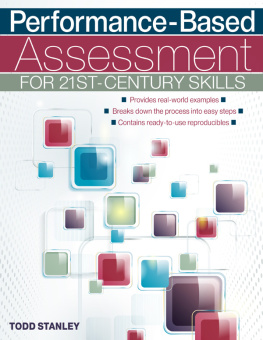
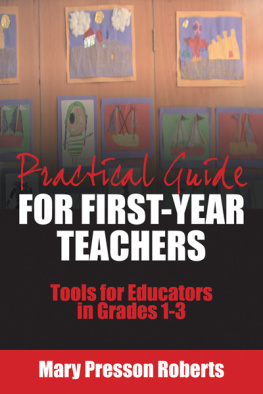
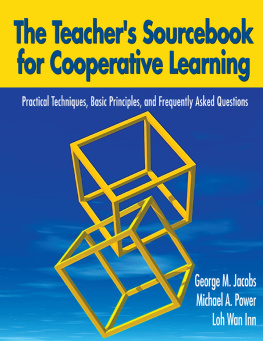
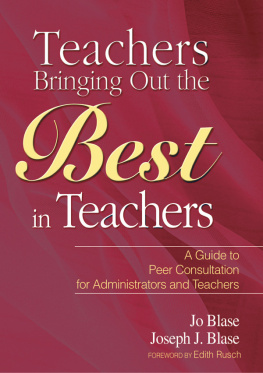
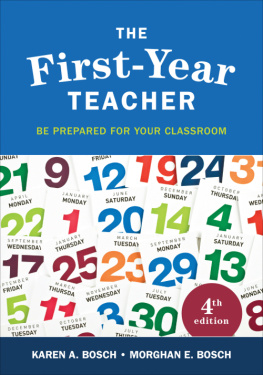
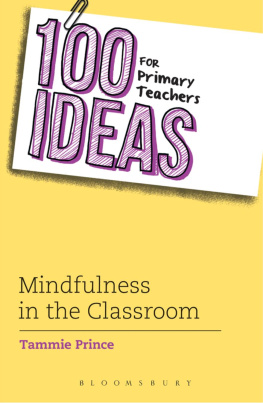



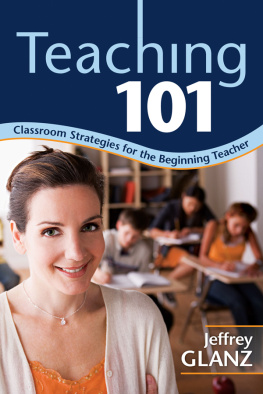
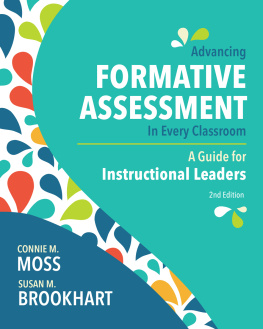

 The paper used in this publication meets the minimum requirements of American National Standard for Information SciencesPermanence of Paper for Printed Library Materials, ANSI/NISO Z39.48-1992.
The paper used in this publication meets the minimum requirements of American National Standard for Information SciencesPermanence of Paper for Printed Library Materials, ANSI/NISO Z39.48-1992.